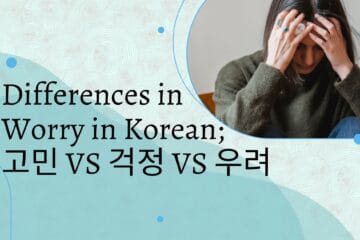In Korean, sometimes yes means no? Korea has a little quirk different from English when it comes to answering questions. The basics of it is that in Korean, you answer the statement and not the intention- I’ll quickly break it down now!

How to Answer Yes/No Questions
In Korean, your answer is dependent on the words in the question. No matter if someone asks you something like “you don’t like it?” or “you like it?”, you’ll reply with yes to both if they are correct.
To make it simple, I’ll run through some examples with the meaning directly there:
Q: 마지막 쿠키를 안 먹었어요?: you didn’t eat the last cookie?
A: 네 (yes, I didn’t eat the last cookie)
Q: 한국말 할 수 있어요?: can you speak Korean?
A: 아니요 (no, I can’t)
Q: 한국말 못해요?: you can’t speak Korean?
A: 네 (yes, I can’t)
Q: 이 책 안 읽었어요?: you didn’t read this book?
A: 아니요 (no, I did read it)
Q: 시험 공부를 했어요?: did you study for the test?
A: 아니요 (no, I didn’t)
So think of 네 and 아니요 similar to ‘I agree’ and ‘I disagree’ if that helps you get down the usage a bit better!
Still Hard to Understand Sometimes Yes Means No?
If you find this tricky, you can answer without 네/아니요. Just respond with the follow-up sentence. So, in a situation where someone asks, “you didn’t read this?” you can just say, “I read it”
Like this:
Q: 이 책 안 읽었어요?: you didn’t read this book?
A: 그 책 읽었어요: I read that book



1 Comment
Dax · June 22, 2025 at 2:54 pm
Super interesting! Reminds me of how answering questions in Chinese can be tricky too. There is no ‘yes’ or ‘no’, the words for agreeing or disagreeing depend on the question. Also, I like the short and sweet post! 🤝 Keep it up!